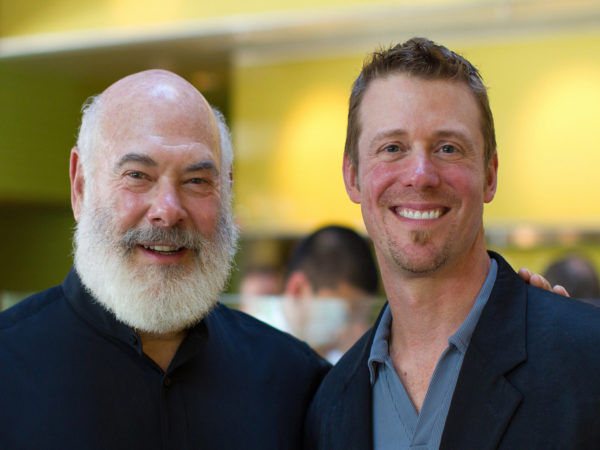Meet James Nicolai, M.D.

Tell us a little bit about your background.
My original training is in family medicine. After attending the Indiana University School of Medicine, I did an internship and then residency training in family medicine in Indianapolis, Indiana. During my medical education, I quickly realized that there were glaring gaps in my knowledge base. I was trained very little on nutrition. No one talked to me about the mind-body connection or how to offer an exercise prescription. My training was primarily focused on disease – how to identify it, get rid of it or at least manage it at a level where you could live with it.
This seemed to me to be a very limited viewpoint on how to get and stay healthy. Consequently, early on in my career, I was looking for alternative viewpoints on health and healing. I found them in Dr. Andrew Weil, who, through his early books, Spontaneous Healing and 8 Weeks to Optimum Health talked about a kind of medicine that I wanted to learn about and practice.
I was fortunate to be accepted in Dr. Weil’s Program in Integrative Medicine Fellowship after my initial medical training. I brought my wife and six-month-old to Tucson, where I began learning integrative approaches to health: studying medicinal plants, nutrition recommendations, breathing techniques and other forms of mind-body medicine, how to assess levels of change in people and learning motivational interviewing techniques to guide people to move past resistance or limiting patterns of behavior. This is where I learned to be a healer as well as a better doctor, and after two years, I went back to Indiana to develop a practice in Integrative Health Coaching.
I stayed in Indiana for seven years, where I received certification in biofeedback, clinical hypnotherapy and bariatrics – medically supervised weight loss. Along with a medical partner, I worked to develop a lifestyle medicine program primarily addressing overweight and obese individuals. Through a multidisciplinary team, we worked with patients to teach them various tools to live differently, with the side effect being more energy and vitality, better sleep, improved relationships and self-image, as well as returning to a healthier weight with improvement in weight-related diseases like diabetes, high blood pressure and cholesterol, chronic pain and fatigue, among others.
What do you think are the most important ways to maintain good health and well-being?
It isn’t rocket science! Maintaining good health and wellness occurs when we live life in balance. It happens when we take care to eat, drink, sleep, manage stress and relate to others in a way that we know we need to. It happens when we proactively deal with the toxicities of our lives – toxic environments, behaviors, people – and ultimately when we free ourselves from the complacency of letting the distractions of life lull us to sleep and cause us to lose our vigilance. To me that is the formula for optimum health.
Is there one bad health habit you wish people would quit? Why? How about one good habit you’d like to see more people start?
As I said above, I think the worst habit most of us fall into is complacency. It’s not that most of us have never been healthy before. It’s that for some reason, we found a way to lose the vigilance to maintain that healthy lifestyle. We let our health slip and the negative momentum of those choices has caused us to fall into a pattern that keeps us quietly miserable. Our health is a daily decision that we need to fight to maintain. If we don’t exert that daily vigilance, it will quickly fall away from us.
The number one health strategy I teach to everyone is how to breathe correctly. Most of us have forgotten how to breathe for optimum health. Using the breath correctly can calm us down, correct hormonal imbalances, reduce pain, improve sleep, manage stress, boost immunity, access our unconscious mind, innate intelligence, even our spirituality. Learning how to breathe correctly could solve a number of stress-related problems most of us experience on a daily basis.









